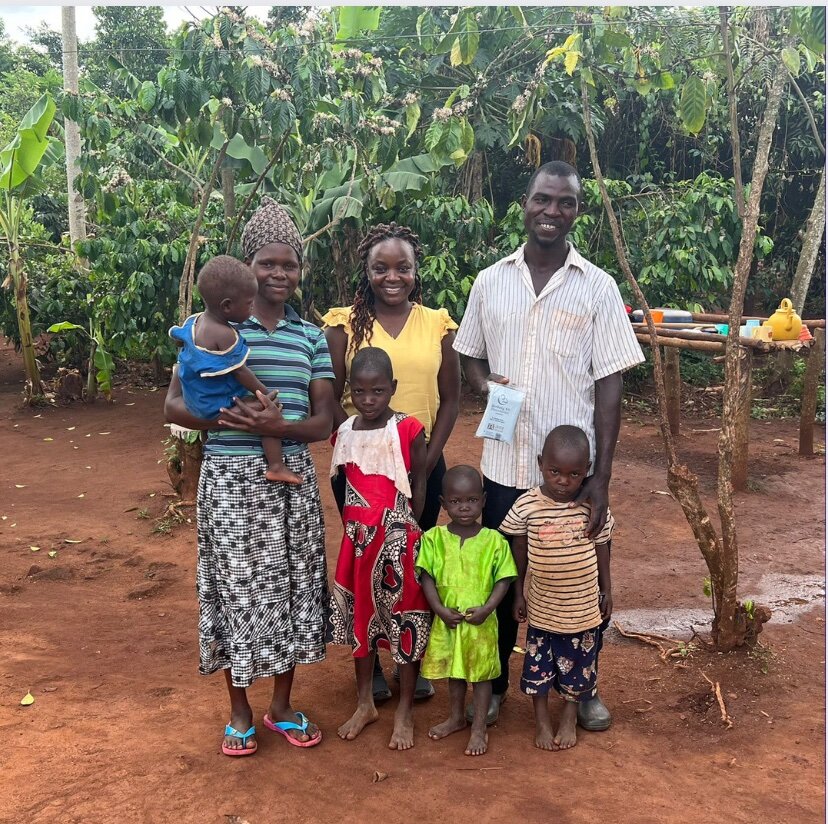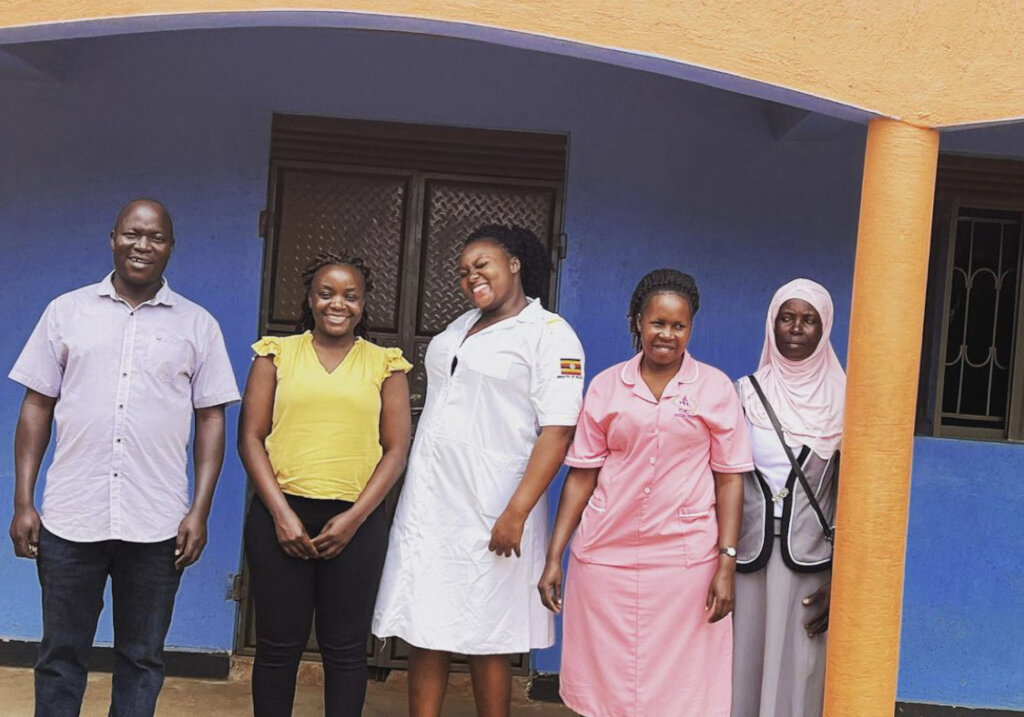By Victoria Lewis | Digital Marketing Coordiator
In 2022 December BKFA Program Manager - Mercy Oloo, travelled to Uganda to monitor the work of our Ugandan field Partners. As part of the visit, she was also able to have a call with a number of our other African field partners.
To examine the Birthing Kit Program, it is important to consider the overall success of the program in Uganda and in other parts of Africa over the past 20 years.
According to Dr Edward of UACO, at the time the distribution program began, women in Uganda had entirely nothing to use during their time of delivery. UACO was working in a small clinic, and the need for birthing kits was extremely high. The current infant mortality rate for Uganda in 2023 is 39.171 deaths per 1000 live births, a significant decline from 87.908 in 2000.
20 years ago, there was little to no availability of resources and in some cases women had to use animal skins to deliver their babies. It was also difficult to protect women and health workers from HIV/AIDS and other diseases. The country had a few health centres, which were offering support for mothers.
When BKFA kits arrived, they were everything for the women.The kits allowed the women and their babies to have a cleaner and safer birth, and also protected them from some of the diseases which were prevalent at the time.
Fast forward to today, the needs of the communities have changed and there's more requests to provide more items in the kits. The communities are now dealing with new challenges including ongoing COVID issues and Ebola. The economy is at a downturn, pregnancies have spiked, and the field partners are faced with operational challenges. But the great news is BKFA kits are still able to provide a clean environment for the mothers to deliver their babies.
The last 20 years have shown us, there will always be something that will limit the partners and BKFA's ability to provide more help. The most important thing is to continue doing what has been successful, which is to provide a cleaner and safer birth for the women and their babies.
Additionally, challenges like COVID and Ebola have forced the field partners to become more flexible and make adjustments to the program activities.
During Mercy's visit to Uganda, she had the opportunity to visit our Partner - Supporting Opportunities for Ugandans to Learn Foundation (S.O.U.L), where she met Clementina, a Traditional Birthing Attendant (TBA) who started supporting women during their delivery because she was inspired by her parents and grandparents. In 2022, she delivered over 500 babies, and has been doing this for over 48 years.
The government of Uganda banned traditional birth attendants from delivering babies in 2010 in the hope of improving maternal and infant mortality rates. But despite this and the encouragement to deliver their babies at healthcare facilities, some women still choose to use the services of TBAs despite the high risks associated with their work. Many women, especially young teenage mothers face stigmatisation for falling pregnant at an early age, and therefore still prefer to visit a TBA instead of going into a health care facility.
Mercy also learned that one of the biggest problems for pregnant women, is the lack of resources in hospitals, clinics and health care centres. Women are often required to bring their own birthing kits, when they go to deliver and if they don't have one, most are often sent home.
The government health care system is strained, making it impossible for the government to cater for everyone, especially the most vulnerable. The cost of maternal health is expensive and the government is not able to provide birthing kits for everyone. According to UNFPA, Uganda’s annual population growth is 3%, meaning 1,200,000 Ugandans are born every year, and this is largely due to a high fertility rate. As a result, most public hospitals in Uganda have low resources, if you look online, the Ministry of Health indicates that services for pregnant women are free. But this is far from the truth on the ground.
Speaking to the field partners, they shared TBAs go beyond their scope of work. Clementina, provides care just like a mother would to her own children. She offers them tea and creates a happy and a clean environment (to the best of her ability). She keeps a record of all the babies names, age, gender, time of birth, condition of birth. With little training, she has been able to deliver a community in all her years of work.
As part of Clementina's work, she encourages all the women to come with a plastic sheet. The ones who show up without, she has to provide. It is imperative for the work of TBAs to be recognised and more should be done to equip and train them, instead of phasing them out.
Mercy's visit to Uganda was extremely important in allowing BKFA to understand how essential the clean birth kits are on the ground and why we must continue to develop a world in which all women have access to a clean and safe birth.
Project reports on GlobalGiving are posted directly to globalgiving.org by Project Leaders as they are completed, generally every 3-4 months. To protect the integrity of these documents, GlobalGiving does not alter them; therefore you may find some language or formatting issues.
If you donate to this project or have donated to this project, you can recieve an email when this project posts a report. You can also subscribe for reports without donating.
Support this important cause by creating a personalized fundraising page.
Start a Fundraiser
